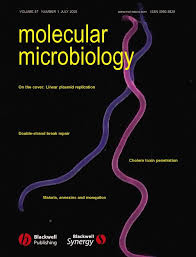 Recently, a reader contacted us with an interesting scenario: He’d recently heard about an author who asked for a refund of his page charges after he had to retract a paper for an honest error.
Recently, a reader contacted us with an interesting scenario: He’d recently heard about an author who asked for a refund of his page charges after he had to retract a paper for an honest error.
The scenario raised questions we’d never considered before. On the one hand, page charges often cover work that was completed in order to publish the paper, such as typesetting, printing, and distribution. That work happened, regardless of whether or not the paper was eventually retracted. On the other hand, researchers often depend on grants to cover publication fees, and if a paper is retracted, they may not be able to charge the grant, leaving them out of pocket.
If there is a fundamental problem with the paper, which the journal could have caught during editing and peer review, does that leave the journal partly responsible to shoulder some of the cost? What about if the article was retracted due to a publishing error, such as the journal posting the wrong version, or the same version twice?
Continue reading Should retractions ever lead to refunds of page charges?
 U.S. Supreme Court nominee Neil Gorsuch appears to have borrowed material from multiple authors in his 2006 book, according to a new analysis by Politico.
U.S. Supreme Court nominee Neil Gorsuch appears to have borrowed material from multiple authors in his 2006 book, according to a new analysis by Politico.
 A researcher who resigned from the University of Dundee in Scotland after it
A researcher who resigned from the University of Dundee in Scotland after it  A group of publishing experts have proposed a somewhat radical idea: Instead of retracting papers, or issuing corrections that address problems, authors should amend published articles. Here’s how it would work – any post-publication changes would be added as amendments labeled “insubstantial,” “substantial,” or “complete” (equivalent to a retraction). Is this a better way? We spoke with authors of a
A group of publishing experts have proposed a somewhat radical idea: Instead of retracting papers, or issuing corrections that address problems, authors should amend published articles. Here’s how it would work – any post-publication changes would be added as amendments labeled “insubstantial,” “substantial,” or “complete” (equivalent to a retraction). Is this a better way? We spoke with authors of a  A researcher in Germany has been banned from seeking money from the largest independent research funder in the country for five years after an investigation by her former employer found her guilty of misconduct.
A researcher in Germany has been banned from seeking money from the largest independent research funder in the country for five years after an investigation by her former employer found her guilty of misconduct.


 Recently, a reader contacted us with an interesting scenario: He’d recently heard about an author who asked for a refund of his page charges after he had to retract a paper for an honest error.
Recently, a reader contacted us with an interesting scenario: He’d recently heard about an author who asked for a refund of his page charges after he had to retract a paper for an honest error. SCOPUS, the
SCOPUS, the